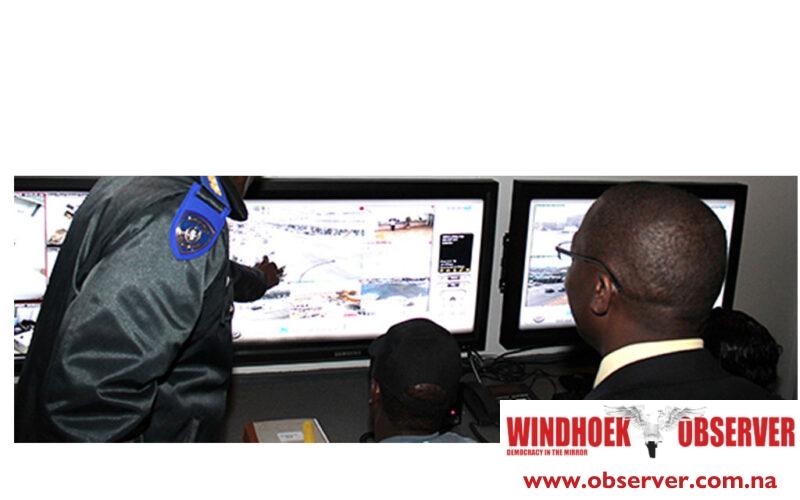Hertta-Maria Amutenja
The Windhoek City Police remains reticent about the repair costs of non-functioning Closed Circuit Television (CCTV) cameras scattered throughout the city and the overall impact on public safety despite repeated inquiries.
Upon request, the City Police revealed that out of the 131 CCTV cameras installed, six are temporarily out of service due to faulty network transmission devices.
“The majority of the cameras are visible to the public at various intersections, and certain areas of the city, both the eastern and western area command divided by the B1 road. Most cameras that are non-functional are due to faulty networking transmission devices, but the moment we detect it we rectify or replace them if the problem persists,” City Police Spokesperson Superintendent Marcelline Murapo said.
However, when pressed for details on the repair costs, Murapo remained elusive, citing the project’s pilot phase status.
“We are unable to provide the information you have asked for because we do not have a budget allocated for it,” Murapo stated.
She further said as soon as the city becomes aware of a malfunctioning camera, they immediately deploy the zonal patrol’s members, which could have a significant influence on crime, road safety, and municipal bylaws.
Furthermore, queries regarding the city police annual report were met with a similar response.
Chief of the City Police, Leevi Iileka, told Windhoek Observer that the department does not produce annual reports.
When pressed further, Murapo cited the need for permission to share such information.
“Rest assured that this project is one of our top priorities, Council makes sure that the upkeep is covered. Be assured that the budgetary needs for CCTV maintenance and surveillance enhancement are catered,” Murapo said.
However, the history of Windhoek’s CCTV initiative suggests a tumultuous journey.
A 2015 Namibian newspaper article revealed a N$25 million investment in surveillance equipment, yet highlighted widespread dysfunctionality within the system.
Reports indicated that most cameras were non-operational.
The secrecy surrounding contracts and tender processes further complicates the issue.
Concerns were raised about overcharging by contracted companies and lack of transparency in procurement procedures.




